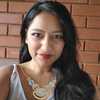“The Beer Hits Different”: Afrikaner Men Enjoy Umqombothi at a Traditional Gathering
- A video shared on social media shows a group of Afrikaner men participating in a traditional South African ceremony
- The gathering appears to bridge cultural divides, with both Xhosa and Afrikaner South Africans taking part in the traditional ritual
- The clip sparked mixed reactions from social media users, with some praising the cultural integration while others questioned the motivations behind the gathering

Source: Getty Images
A group of young Afrikaner men were filmed sharing traditional South African beer at what appears to be a cultural gathering in March. Content creator @mzansiprolificconnect_, known for sharing various South African cultural and entertainment content, posted a video showing several Afrikaner men participating in a traditional beer-drinking ritual.
In the footage, the shirtless men are seen passing around a clay pot containing umqombothi, a traditional African beer. The gathering takes place in what looks like a traditional African home. A man dressed in traditional attire can be seen standing up before leaving, after which the Afrikaner men continue sampling the traditional brew, following customary practices.

Read also
"So many crosses": Elon Musk reacts to clip of farmers' memorial site, Witkruis Monument, SA divides
While it's unclear whether the men are participating in a specific ceremony or simply experiencing traditional South African culture, the video shows a moment of cultural exchange that wouldn't have been common in previous generations.
Watch the Facebook video below:
PAY ATTENTION: Briefly News is now on YouTube! Check out our interviews on Briefly TV Life now!
What is umqombothi?
Umqombothi is a traditional South African beer made from maize meal, crushed maize malt, and crushed sorghum malt, combined with water and yeast. It has a low alcohol content but is rich in B vitamins, with a thick, creamy consistency and a distinctly sour aroma.
The beer is traditionally brewed outdoors following methods passed down through generations. The brewing process involves fermenting the ingredients overnight, cooking the mixture until a crusty sediment forms, and then allowing it to ferment further before straining.
The traditional way to test if the brew is ready is to light a match near the container. If the match blows out quickly, the beer is ready due to the carbon dioxide produced during fermentation.
Umqombothi plays an important role in different cultural ceremonies. It's used during the homecoming celebrations of young men after initiation and circumcision rituals in Xhosa culture. The beer is also central to ceremonies involving contacting ancestors, as well as celebrations like traditional weddings, funerals, and community meetings called imbizos.
What many people don't know is that the beer has been associated with health concerns. Research has found that the sorghum and maize used as ingredients can be contaminated by mycotoxin-producing moulds. While the brewing process eliminates the fungi themselves, studies have shown that some commercially brewed sorghum beers contained aflatoxins and many home-brewed versions contained other harmful compounds.
Briefly News spoke to medical expert Jayshri Rangasamy on the effects of drinking umqombothi. She stated that:
"Traditional beer like umqombothi can carry health risks if not prepared carefully. Contaminated grains may contain mycotoxins, such as aflatoxins and fumonisins, which are harmful to the liver and potentially cancer-causing. Additionally, poor hygiene during brewing can lead to bacterial contamination, causing foodborne illnesses. Using clean ingredients, water, and equipment helps reduce these risks."
"As culturally meaningful alternatives, drinks like mageu (a non-alcoholic fermented maize beverage), rooibos tea, or traditional herbal infusions can be used in similar ceremonial contexts. These options maintain the spirit of tradition and community while offering safer and often more inclusive choices."

Source: Facebook
Social media reactions to the event
@thabang6983 joked:
"That's why it's raining too much 😂😂"
@dede.sikosana4 commented:
"Send it to Trump."
@mansosrico observed:
"Gen Z is proving the older generations wrong."
@ash_the_avocado said sarcastically:
"That's how they distract us while their parents are chowing down the land."

Read also
"Taking his cap off in respect": Afrikaner youngsters show Ramaphosa proper manners during visit
@todd_a__ questioned:
"All those saying send it to Donald/Elon, why? Why don't we focus on in-house issues and send/call out our people, e.g. Nato Baloyi 🤌🏼"
@chos3nking remarked:
"Someone get these refugees some shirts."
Other cultural interactions in South Africa
- Briefly News recently reported on an Afrikaner man who shared a revealing video tour of growing up in Batho Township from ages 9 to 19.
- A South African farmer posted a heart-to-heart TikTok video discussing the harsh realities facing families involved in the H2A visa program.
- The Economic Freedom Fighters (EFF) in Gauteng marched to the Afrikaner-only town of Kleinfontein outside Pretoria, accusing the settlement of promoting racial segregation and economic exclusion.
PAY ATTENTION: Follow Briefly News on Twitter and never miss the hottest topics! Find us at @brieflyza!
Source: Briefly News

Nerissa Naidoo (Human Interest Editor) Nerissa Naidoo is a writer and editor with seven years of experience. Currently, she is a human interest writer at Briefly News and joined the publication in 2024. She began her career contributing to Morning Lazziness and later joined Featherpen.org. As a TUW ghostwriter, she focused on non-fiction, while her editorial roles at National Today and Entail.ai honed her skills in content accuracy and expert-driven editing. You can reach her at nerissa.naidoo@briefly.co.za

Jayshri Rangasamy (Medical Scientist - Pharmacologist - Clinical Team Lead) Jayshri Rangasamy, Fortrea's Clinical Operations Delivery Leader, oversees the company's Clinical Team. She has extensive experience in both infectious diseases (tuberculosis, Ebola, COVID-19) and non-infectious diseases (cardiovascular, endocrinology, and gastroenterology), as well as oncology (lung cancer, hematologic malignancies). Rangasamy, who holds a MS and BS in Pharmacology and Human Physiology from the University of Pretoria, is an advocate for empathetic leadership. She's also a certified Latin and ballroom dancer.

